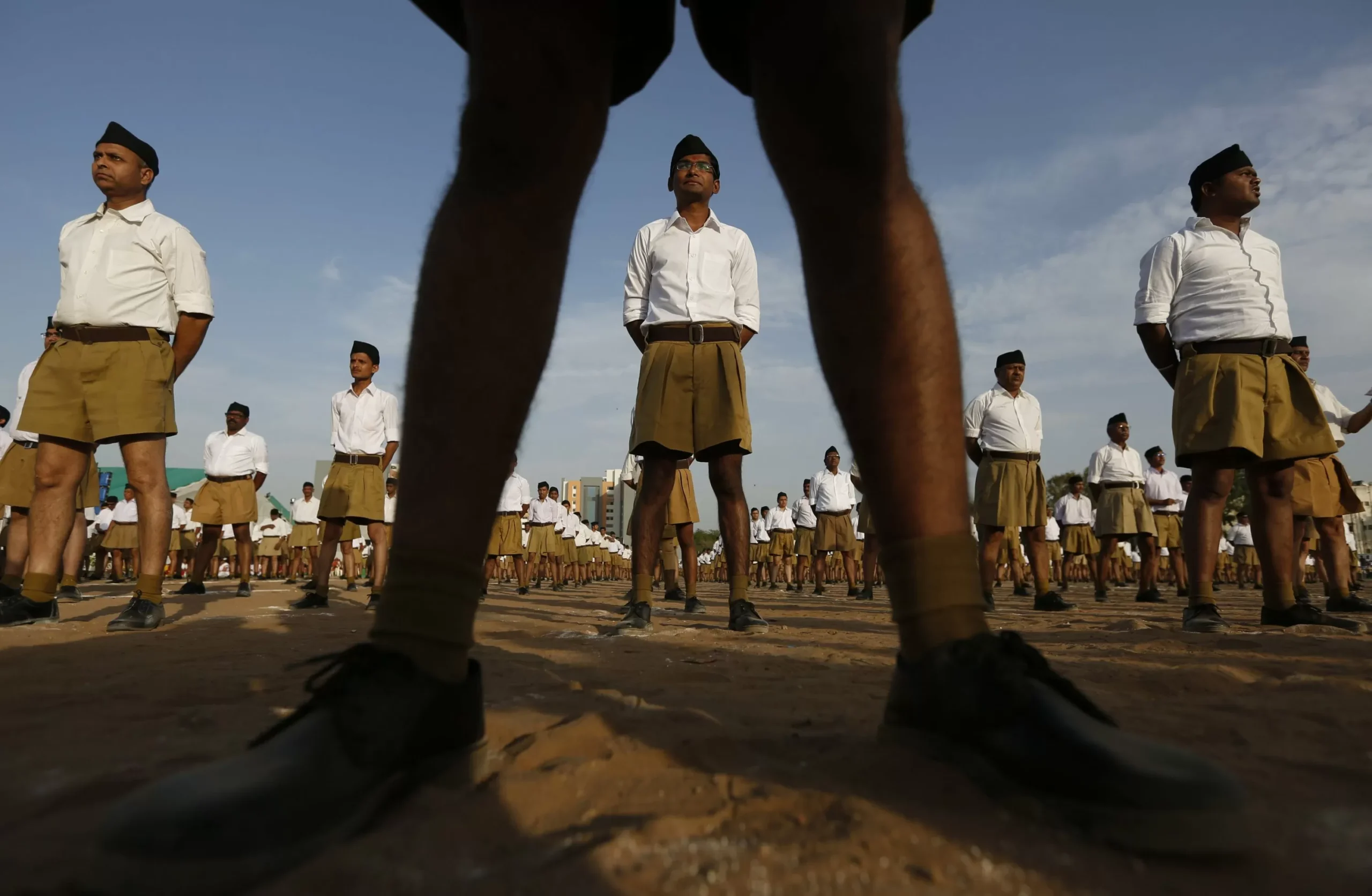In a bold move, the Indian government, under the leadership of Prime Minister Narendra Modi, has announced that civil servants will now be able to join a far-right Hindu nationalist group. This decision, which was made public on Monday through a government memo, has sparked both controversy and support from various sectors of society.
The memo, issued by the Department of Personnel and Training, states that civil servants will now be allowed to join the Rashtriya Swayamsevak Sangh (RSS), a right-wing organization that promotes Hindu nationalism and cultural values. This marks a significant change in the government’s policy, as previously civil servants were not allowed to join any political or ideological groups.
The move has been met with mixed reactions, with some hailing it as a step towards a more inclusive and diverse civil service, while others have expressed concerns about the potential politicization of the bureaucracy. However, the government has defended its decision, stating that it is in line with the principles of democracy and freedom of association.
The RSS, which was founded in 1925, has a strong presence in Indian politics and society. It has been a major influence in shaping the country’s cultural and political landscape, and its members have held prominent positions in the government, including the current Prime Minister Narendra Modi.
The decision to allow civil servants to join the RSS has been seen as a strategic move by the government to strengthen its ties with the organization and its supporters. This move is also seen as a way to further consolidate the ruling party’s hold on power, as the RSS has been a strong supporter of the Bharatiya Janata Party (BJP) and its policies.
The memo has also sparked discussions about the role of civil servants in a democratic society. Some argue that civil servants, as neutral and apolitical entities, should not be allowed to join any political or ideological groups. However, others argue that civil servants are also citizens with the right to express their political beliefs and affiliations.
The government has clarified that civil servants will still be expected to maintain their impartiality and neutrality while performing their duties. They will not be allowed to participate in any political activities or use their position to further the interests of any particular group. This move is seen as a way to address the concerns about the politicization of the bureaucracy.
The decision has also been welcomed by the RSS, with its spokesperson stating that it will help in creating a more diverse and inclusive civil service. They also emphasized that the organization does not discriminate on the basis of religion, and that its members come from all sections of society.
This move by the government has also been seen as a way to address the criticism that it has been promoting a Hindu nationalist agenda. The government has faced criticism for its policies and actions, which have been seen as a threat to the country’s secular fabric. By allowing civil servants to join the RSS, the government is sending a message of inclusivity and acceptance of all ideologies.
The decision has also been praised by many as a way to empower civil servants and give them the freedom to express their beliefs. Civil servants play a crucial role in the functioning of the government and are often the backbone of its policies and programs. Allowing them to be a part of an organization that promotes nationalism and cultural values can further motivate and inspire them to serve the country with dedication and passion.
In conclusion, the decision of the Indian government to allow civil servants to join the RSS has sparked debates and discussions, but it is ultimately a step towards a more inclusive and diverse civil service. It is a move that recognizes the rights of civil servants to express their political beliefs while also ensuring that they maintain their impartiality and neutrality. This decision also sends a message of inclusivity and acceptance, which is crucial in a diverse and democratic society like India.





![Complete BritRail Pass Guide [Types, How to Use It, Pros + Cons]](https://inside-news.uk/wp-content/uploads/2025/06/00221EB4-BCA2-4DBB-6CD4-83DBC37D71FA-120x86.webp)
















